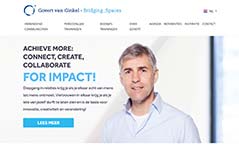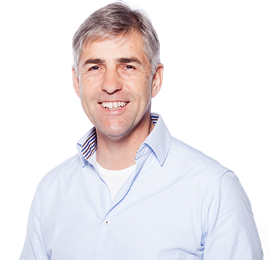A reflection on consumption, nature, and what Thoreau would tell us about our times
I recently visited the exhibition “We Are Nature” at the Singer Museum in Laren. Princess Irene van Lippe-Biesterfeld draws attention to the profound relationship between humanity and nature. She argues that humanity has placed itself outside and above nature, with all the consequences that entails. “We have distanced ourselves from nature, even though we are inextricably linked to it. By connecting with nature, and therefore with each other, we are building a future together in which the well-being of all life is fully realized.”
I enjoy art, especially when it helps me reflect on life. A visit to a museum becomes a meditative moment. Beautiful. I’m glad I can escape from all the commotion in the world.
Because that reality is so different. I realized this when I saw an electric eraser among the office supplies at HEMA. What?? Can you believe it? Just moments ago, I was reflecting on this with Princess Irene: “how we can build a future together where the well-being of all life is fully realized,” and next I come across something like this.
The Paradox of Our Time
Ridiculous! Yet another unnecessary device to make people energy-dependent. Even if it works better than a regular eraser, do you really need it? Who, now or ever, has spent so much time erasing that they ended up with a strained wrist?
And what are the environmental consequences? More plastic, more batteries, and the energy required to produce it and then process it as waste. How can we be considered sustainable if we’re still willing to put this in stores and have people buy it?
This transition from the contemplative moment in the museum to the confrontation with such an electric eraser feels like a poorly timed joke from the universe. It illustrates a painful paradox: we feel the urgency of climate change, we want to live more sustainably, but at the same time we are overwhelmed by an endless stream of products that promise to make our lives just a little bit easier.
What Thoreau Would Say About This
Henry David Thoreau would probably shake his head and get that dry, ironic smile that permeates his writings. He would see this as a perfect example of what he meant when he wrote in Walden: “Men have become the tools of their tools.”
For Thoreau, the electric eraser was precisely the kind of “improvement” he was so skeptical of. He stated: “Most of the luxuries, and many of the so-called comforts of life, are not only indispensable, but positive hindrances to the elevation of mankind” (Walden, “Economy”). He would ask: does this eraser solve a real problem, or does it actually create more dependency? Thoreau believed we should “simplify, simplify” our lives—and here you see the exact opposite: complexity for complexity’s sake, technology for technology’s sake. He wrote: “A man is rich in proportion to the number of things which he can afford to let alone” (Walden, “Where I Lived, and What I Lived For”).
The Invitation to Conscious Living
That electric eraser is precisely the kind of thing you can afford to ignore. It represents what we might call “hyperconsumption”—we no longer consume out of necessity, but out of a kind of inner turmoil. Every new gadget promises a solution to a problem we might not even have.
Do we then no longer ask ourselves any ethical questions about our lives at all? Do we behave like consumer junkies, who on the one hand visit an art exhibition and on the other, out of sheer boredom and tormented by an inner emptiness, are seduced into buying unnecessary junk? With the hope of a glimmer of happiness or the feeling that you’ve done something, even if it’s very temporary and only makes the garbage dump of your life bigger?
A Wake-up Call
Thoreau would encourage us not to see that gap between the museum moment and the shopping reality as frustration, but as a wake-up call. An invitation to live more consciously, to ask yourself: “What do I really need for a rich life?”
Perhaps the problem isn’t so much that people don’t ask questions, but that we’ve learned to suppress them. It’s easier to buy that eraser than to reflect on what we actually need for a fulfilled life.
The tension between our conscious intentions and our daily practices calls for attention. Not to condemn ourselves, but to create space for reflection. To pause with the question Thoreau posed to us: what things can we afford to ignore?
Henry David Thoreau (1817-1862) was an American writer, philosopher, and naturalist. His book “Walden; or, Life in the Woods” (1854), a must-have for the Singer Museum, it describes his two-year experiment in simple living in a cabin on Walden Pond in Massachusetts. The work is considered one of the most important texts on simple living, self-sufficiency, and our relationship with nature.
Govert van Ginkel
This article is written by Govert van Ginkel. Govert specializes in Nonviolent and Effective Communication and is active in this field as a trainer, speaker, coach, and mediator. More information about Govert can be found here. The current training offer can be found here
Introduction-evening Nonviolent and Effective Communication
Are you curious about Nonviolent and Effective Communication but still wondering what it could do for you? Join us at the introduction evening and learn more!
more infoInspiration
Register for the ‘Nonviolent and Effective Communication Inspiration newsletter’
In-company training and accredited
company training
For companies, Govert offers customized training to suit your specific needs. Govert also provides accredited (in-company) training for mediators, interpreters, and other professionals.

















